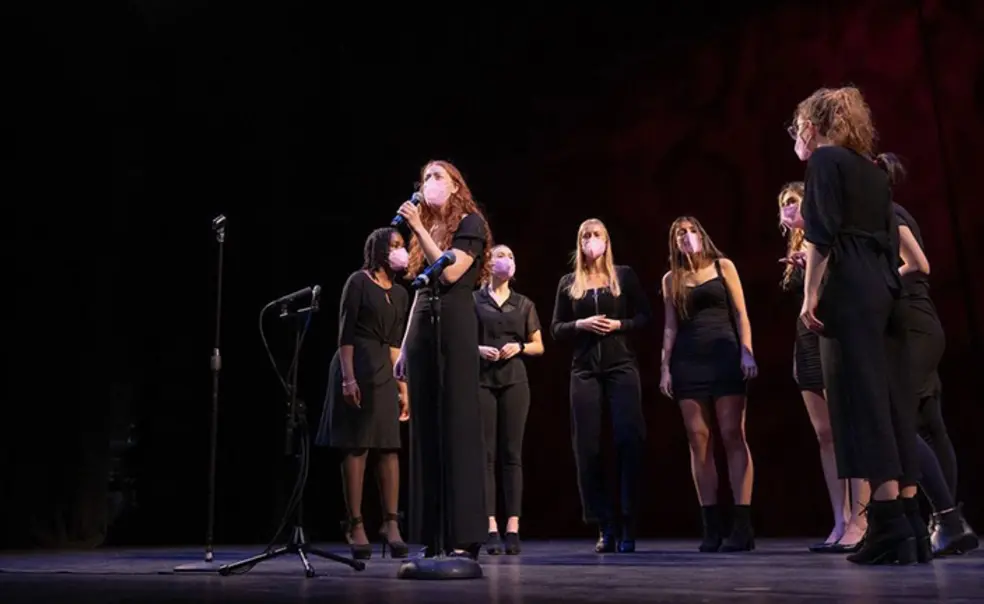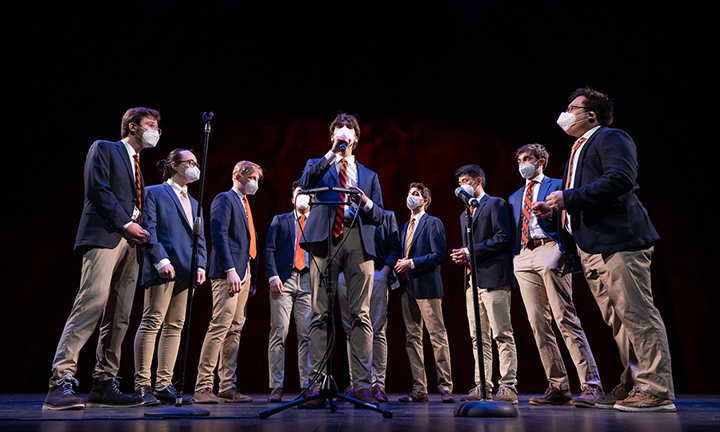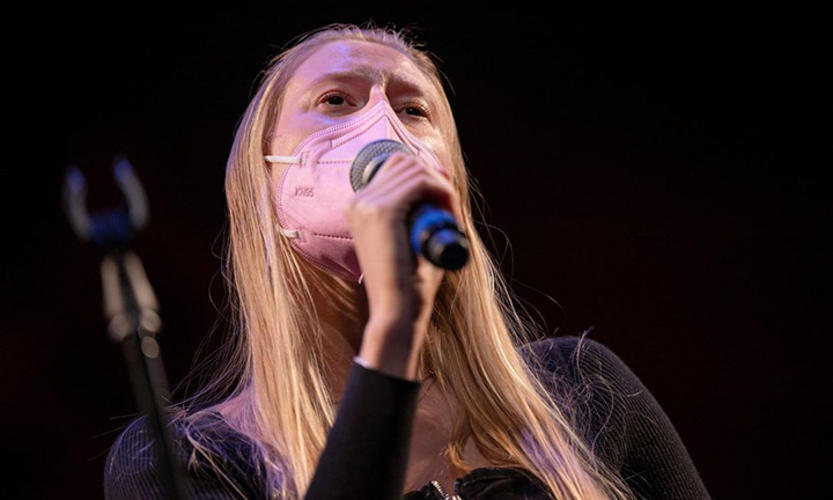Student A Cappella Groups Come Together for the Princeton Sing-Off
As the evening approached 7:30, the line outside McCarter Theatre Center stretched down the sidewalk onto the road. Students, alumni, and community members braved the cold for a chance to attend the Princeton Sing-Off, a showcase of seven a cappella groups held Feb. 24.
The event was not a competition but a showcase for the groups, which included Old NasSoul, the Footnotes, the Nassoons, the Tigerlilies, the Tigertones, the Wildcats, and the Tigressions. The groups represented a wide range of styles and backgrounds, and their varied repertoire appealed to audience members of all ages. Just hearing that the Footnotes would be singing an arrangement of Taylor Swift’s “I Knew You Were Trouble” brought the audience to cheers, and the Tigerlilies’ stirring rendition of “On My Own” from Les Misérables evoked rousing applause.
At the end of the night, all seven groups stood together onstage to conclude the show with “Old Nassau,” inviting alumni to stand and sing along. Voices from the audience mingled with the singers as alumni raised their arms back and forth to the chorus.
The sing-off was a welcome return to in-person shows after COVID-19 put much of student group programming on pause. For the entirety of the 2020–21 school year, a cappella groups were not allowed to audition, rehearse, or perform in person. Many gave virtual performances, but Sahil Suneja ’23, president of the Kaztenjammers, said it wasn’t the same.
“There’s so much quality to the sound that just doesn’t translate virtually,” he said. The Katzenjammers weren’t able to perform at the sing-off, but Suneja joined other student singers and music directors in a post-show panel about how a cappella groups have adjusted post-pandemic.
Last fall, students were able to return to regular programming, as long as the shows followed masking and gathering limits, and the regular camaraderie from rehearsals and excitement from performances were only amplified after the hiatus. But the return has also forced students to regroup after almost two years on pause.Students discussed how they navigated this transition in the panel, which was moderated by Gabriel Crouch, director of choral activities at Princeton. The panel included Suneja and two other undergrads — Lulu Hao ’23, president of the Tigressions, and Gideon McFarlan ’22, former president of Old NasSoul — as well as Trineice Robinson-Martin, director of the jazz vocal collective on campus, and Solon Snider, director of Princeton’s Playhouse Choir.
For many of the groups, the pandemic meant adjusting not only to the loss of performance opportunities but also the loss of institutional memory that would traditionally get passed on before older members graduate.
“Sometimes in this rebuilding structure, we do something unknowingly because we don’t have that institutional memory, and then I get an angry email the next day,” said Suneja. But the group appreciates the continued alumni engagement over the years. “We’re very grateful for everything that they provided for us,” he said.
Old NasSoul is the youngest of the groups that performed, having just celebrated its 15-year anniversary. Though the group may not have the same level of history as others, McFarlan said it has found ways in which its newness allows members to adapt.
“We didn’t have some of that deep-rooted tradition to go back on, so we kind of had to reinvent ourselves in a way,” said McFarlan. “We spent that time to build up something that would be lovely, beautiful.”
The panel also discussed what a typical practice session looks like, the kinds of sounds each group looks for when rehearsing, and how all-female groups compensate for a lack of deeper voices. Ultimately, panelists emphasized the importance of support within the a cappella community.
“That’s what the style is all about, and this is why you’re here,” said Robinson-Martin. “We appreciate you all for coming in for this community.”















No responses yet